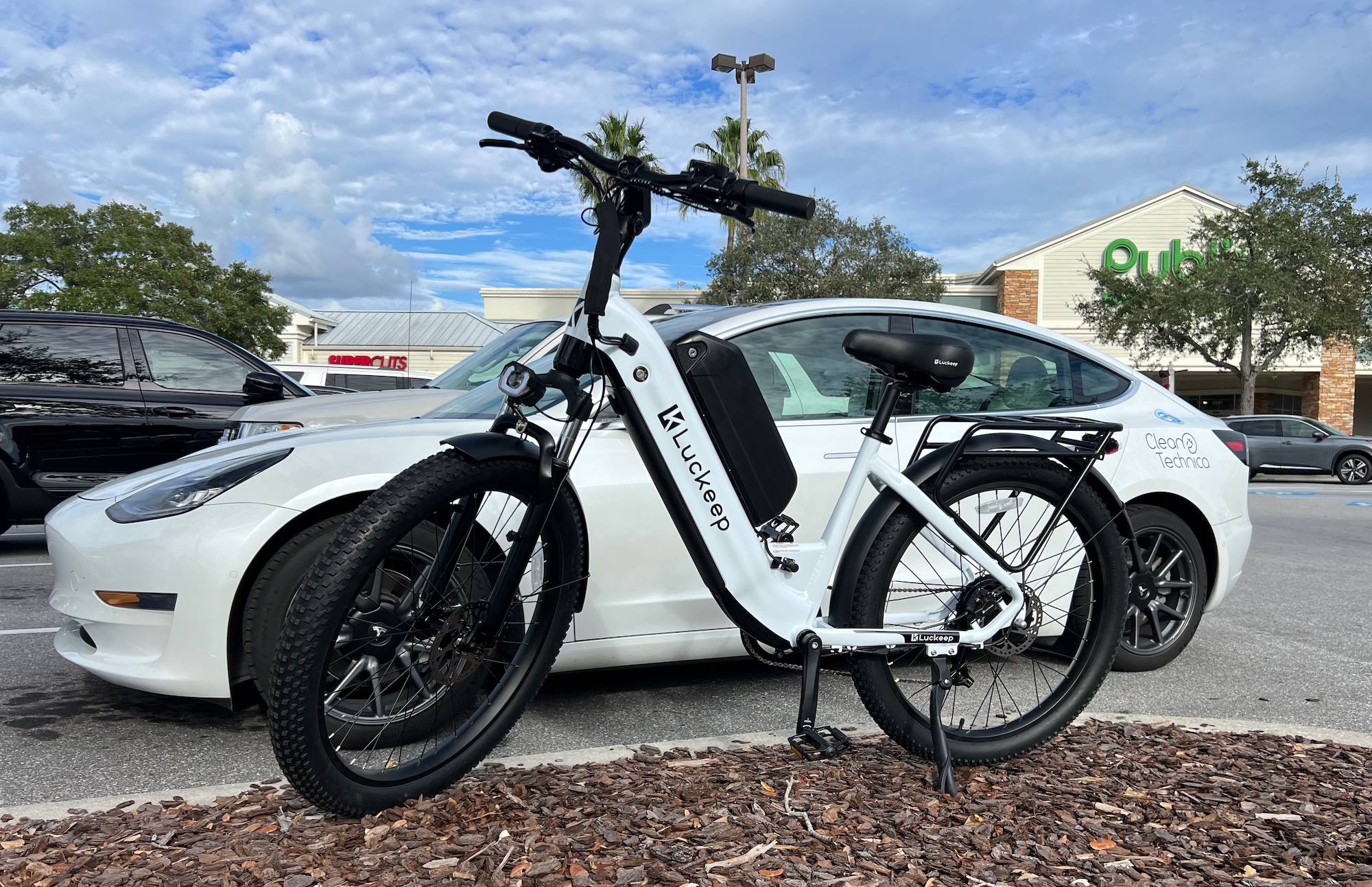Sign up for daily news updates from CleanTechnica on email. Or follow us on Google News!
The US Supreme Court must be ecstatic today. Last month, it stated unequivocally that federal courts should review all decisions by administrative agencies in a case that overturned the long-standing Chevron doctrine, which held that courts should be very careful when substituting their judgement for that of professional civil servants who are experts in their field. Today, the US Court of Appeals for the District of Columbia did exactly that, ruling that the Federal Energy Regulatory Commission was wrong to approve a proposal by Williams Cos to construct a $1 billion pipeline that would traverse five mid-Atlantic states and serve up to 3 million customers.
FERC, A Pipeline, & The Public Interest
According to Pipeline & Gas Journal, the court agreed unanimously with six environmental groups and eight US states, all of whom claimed that FERC did not properly address objections to the Regional Energy Access Expansion Project planned by Transcontinental Gas Pipe Line, a unit of Williams Cos. Circuit Judge J. Michelle Childs wrote for a 3-judge panel, whose members were all appointed by Democratic presidents, that FERC should have done a better assessment of the risks associated with the significant increase in greenhouse gas emissions the pipeline would cause and how the Williams Cos pipeline division might reduce those risks.
She also said FERC did not properly consider the public interest, citing its failure to adequately review New Jersey laws designed to advance the state’s clean energy goals, and whether the state needed more capacity. FERC’s order “discusses climate change and GHG emissions, including its projections for those emissions … but the Certificate Order nowhere explains whether and how the Commission considered those emissions among the adverse effects it balanced and found to be outweighed by the pipeline’s expected benefits,” the court said.
Childs pointed to two studies that said current capacity would suffice beyond 2030. About three-quarters of the methane gas from the proposed project would go to New Jersey customers, with the rest going to Delaware, Maryland, New York, and Pennsylvania. The appeals court returned the matter to FERC for “appropriate action.”
In a statement, Williams Cos said the court erred, but the Tulsa, Oklahoma-based company will address the court’s concerns. It also said the decision will not delay full implementation of the project, which will help provide “much-needed access to clean and reliable natural gas for consumers in the Northeast.” Of course, there is no such thing as “natural gas” — which is about 98%+ methane — any more than there is “natural coal” or “natural oil.” The industry deliberately pushes the idea of “natural gas” because it sounds more customer-friendly than saying “methane.”
Celebrating The Pipeline Decision
In a press release, EarthJustice, which led the appeal on behalf of several environmental groups, was ebullient. It pointed out that FERC’s analysis as required by the National Environmental Policy Act was inadequate because it failed to properly evaluate the project’s enormous impact on the environment and how it would contribute to climate change. The court also agreed that FERC failed to comply with the Natural Gas Act when it concluded there was a public need for the REAE project even though New Jersey claimed its citizens do not need additional gas capacity.
“This victory will help limit the powers of fossil fuel behemoths like Transco, who have armies of lawyers and connected lobbyists, to bypass states like New Jersey that want to continue the hard work of moving away from dirty oil and gas and meeting clean energy goals to protect public health. This decision will also give added protections to working families and local businesses, which are forced to bear the cost of these unnecessary fossil fuel projects,” said Ed Potosnak, Executive Director, New Jersey LCV.
“Fossil fuel projects like REAE lock in higher emissions and dirty fuel infrastructure for decades at the precise moment when we must be moving full steam ahead with transitioning to clean, renewable energy. I applaud the court’s decision to stop this overreach by FERC and a mammoth international fossil fuel company.”
Megan Gibson, chief legal counsel for the Niskanen Center, added,
“Today’s decision by the DC Circuit Court is a significant victory for the public, setting a clear precedent for demanding greater accountability and thoroughness in FERC’s decision making. This ruling will help ensure that gas projects genuinely serve the public interest without imposing unnecessary costs on ratepayers. It also highlights the arbitrary nature of FERC’s authorizations of nearly any gas project before it, underscoring the need for more robust and meaningful assessments moving forward.
“Among other things, the court recognized that FERC failed to adequately address critical market studies, ignored state laws requiring reductions in natural gas usage, relied on unsubstantiated claims, and ignored perverse financial incentives while relying on little more than precedent agreements. We commend the Court for this decision and urge FERC to take this opportunity to enhance its regulatory rigor and truly prioritize the needs of the public.”
Moneen Nasmith, senior attorney at Earthjustice, was equally thrilled.
“The ink has gone dry on FERC’s rubber stamp for gas projects. The court made it clear that FERC’s longstanding flawed rationale that private contracts for capacity demonstrate a public need for a gas project is no longer sound or compatible with our regional, national, and international climate goals. FERC must improve its decision making process for how it considers whether there is a genuine public need for more gas infrastructure projects and how it analyzes and weighs the climate impacts of proposed projects.”
Maya van Rossum, leader of the Delaware Riverkeeper Network went even further.
“It has taken decades of litigation and advocacy by frontline community members, environmental organizations, and state agencies seeking to educate the courts about the inequities of the FERC pipeline review and approval process. Today, all that work has finally paid off. With this ruling, not only have we defeated the forward progress of the Transco REAE pipeline, but we have secured a decision that gives high priority to state climate change laws and the obligation on FERC to take responsibility for how its actions and decisions advance, or help ameliorate, the growing climate emergency. And I hope we have finally broken the chain of partnership and blind allegiance, regardless of the catastrophic consequences for our environment and communities, that FERC has so obviously given the pipeline companies.”
“It’s hard to overstate the significance of today’s decision. The Regional Energy Access Expansion pipeline was an unnecessary and harmful project that would lock us into decades of greenhouse gas emissions and hinder the efforts of New Jersey and the nation as a whole to transition away from fossil fuels. Today’s resounding victory means FERC can no longer ignore the climate impacts of fracked gas pipelines proposed on bare assertions of market need, and must exercise its authority in the interest of the public rather than advancing the pecuniary interests of the fracked gas industry.”
The court found REAE’s potential effects on New Jersey’s energy landscape were not fully weighed against the project’s purported benefits, EarthJustice said. While New Jersey has binding requirements to dramatically reduce its GHG emissions and have its gas utilities cut their consumption, FERC ignored that the REAE project would undermine New Jersey’s goal of reducing greenhouse gases 50% by 2030 and actually lead to a 16% increase in the state’s total greenhouse gas output annually.
The Takeaway
How sharper than a serpent’s tooth is this decision. The US Supreme Court said lower courts should be the guardians protecting Americans from government overreach and boy, howdy, did the DC Court of Appeals take that message to heart! The pipeline people will no doubt petition for a review by the full DC court or go running to the fossil fuel stooges on the Supreme Court to pull their chestnuts from the fire. It will be interesting to see how Roberts and company try to wiggle out of the trap they set for themselves, but try they will.
It ain’t over till it’s over, and the fossil fuel crowd is relentless in its quest for profits regardless of the cost to society or the environment, but there is now a glimmer of hope that the courts will step up their efforts to protect the environment instead of polluters. It’s about time, wouldn’t you agree? And oh, by the way, if you approve of the work EarthJustice is doing and wanted to make a donation to help them continue fighting for climate justice, we are pretty sure they won’t object.
Have a tip for CleanTechnica? Want to advertise? Want to suggest a guest for our CleanTech Talk podcast? Contact us here.
Latest CleanTechnica.TV Videos
CleanTechnica uses affiliate links. See our policy here.
CleanTechnica’s Comment Policy





